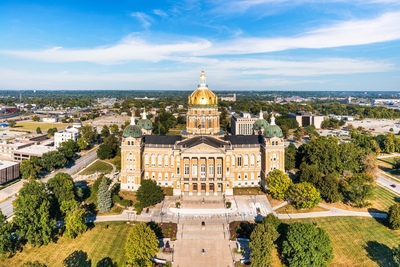
State Government Affairs, Elections & Campaigns
State AG Races to Watch in 2026 and Why You Should Care
February 4, 2026 | Maggie Mick
October 7, 2021 | Rob Shrum

Key Takeaways:
Fall is here and with it comes the end-of-year “groups” conference season. There are several important events lined up from now through the end of the year (check out our groups calendar here for those details if you haven’t already). These policymaker conferences, such as National Conference of State Legislature’s (NCSL) Legislative Summit and American Legislative Exchange Council’s (ALEC) States and Nation Policy Summit, to name a few, are valuable from a government affairs perspective in that they help set the policy agenda for state lawmakers for the coming legislative year.
While there are some aspects of these events that are “back to normal,” the COVID-19 pandemic still significantly impacts these gatherings, and there are some important things to consider when preparing to participate. Some level of COVID-19 precautions, venue flexibility, dress code changes, and extra mindfulness of attendees’ health and safety needs will be standing issues to be aware of for events through the remainder of 2021, and likely beyond. Adjusting to these expectations and participating in these events is vital for government affairs professionals and policymakers alike.
Need help on where to start, or how to maximize your groups engagement? MultiState can help you create a plan to engage the policy community. Read more about our Strategic Government Relations practice or contact us here.
One thing became abundantly clear during the summer conference stretch — no two conferences have the same level of COVID-19 precautions, and this will likely continue going forward. Some events had little or no precautions implemented whatsoever, such as mask or vaccine requirements for attendees. Others went so far as to mandate rapid COVID-19 tests on-site in addition to requiring masks and proof of vaccination. Before attending gatherings this fall, make sure you are clear on the measures put in place due to the pandemic. Equally as important is being respectful of the wishes of other attendees (some will wear masks when not required) and ensuring your needs are met as well. Don’t be pressured into being less cautious than you are comfortable with. If you’re traveling out of state, it is also helpful to research any state or local rules in place (check out all of our resources here).
A major change that impacted virtually all events in 2020 was the shift to virtual conferences. While many events are now being held in person, there are still several gatherings that are limited to virtual-only. Before assuming an event is in person, double-check to make sure you won’t be going somewhere just to stay in your hotel room and join the gathering online. Similarly, even if events are scheduled to be in-person, be prepared for a change to online, even at last-minute notice. Have a backup plan for your planned meetings and engagements in the event that a conference goes virtual. This way, you’ll still meet your objectives for attending the meeting.
During the pandemic, dress codes changed from business to very casual. A return to in-person conferences could be quite a shock for those not prepared for what to wear in our “new normal.” Fewer events are full business attire and most now recommend business casual attire — possibly being a little more casual than previous years. That being said, confirm the attire expectations before arriving in a full suit or looking too casual.
Just as each conference approaches COVID-19 differently, each attendee has their own specific expectations and needs to be mindful of. It’s wise to ask if a handshake is appropriate before attempting one. Some attendees may prefer others to wear a mask when in close proximity, and others might prefer to interact outdoors, even when portions of the event are going on inside a hotel or other indoor venue. In situations like this do your very best to accommodate others’ health and safety needs. And again, don’t let anyone marginalize or pressure your own health and safety needs.
While things are certainly far from pre-COVID-19 “normal” and many policymaker events have hurdles that didn’t exist before 2020, it is vital for your government affairs strategy to participate and engage. Think about things from the perspective of lawmakers, particularly those who started their jobs at the beginning of 2020. Their ability to connect and interact with constituents, government affairs professionals representing important issues, and other lawmakers from across the country has been significantly impacted by the pandemic. Any opportunity to connect and build relationships, learn from subject matter experts on important issues, and share best practices with other elected officials is going to be important to them (and you!), especially now. On the flip side, government affairs professionals lacked the benefit of in-person contacts with many lawmakers during the pandemic and these conferences provide valuable opportunities to once again visit with policymakers to build relationships heading into the next legislative season.

February 4, 2026 | Maggie Mick
-f16ae1-400px.jpeg)
February 4, 2026 | Bill Kramer

December 10, 2025 | Bill Kramer